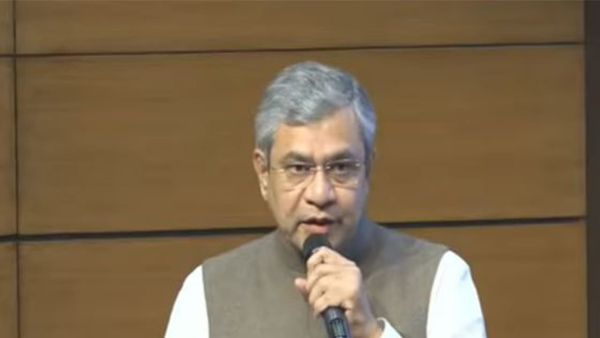
Union Minister for Railways Ashwini Vaishnaw unveiled the rationalisation of rates for bulk cement in containers and policy for bulk cement terminals on Tuesday. The policy is part of Railways Reforms for Cement Transportation, Railways said in an official statement.

Unveiling the Policy in Rail Bhawan in New Delhi, the Union Minister described this moment as a game changer. He said, these reforms will bring down the cost of cement for the middle and poor families as they build their dream home.
As per the new policy, distance and weight slabs have been removed. The new rate has been rationalized to Rs 0.90 per tonne per kilometre at flat Gross Tonne KM, the Union Minister said.
Ashwini Vaishnaw said, tank containers will be an end to end pollution free logistics solution for bulk cement transportation. The Union Minister said, India is now the world's second-largest freight carrier, having surpassed the USA. The rail network expansion has increased from 4 km per day (during 2004-14) to 12-14 km per day, making it over three times faster. The broad-gauge rail network is now almost 100% electrified. More than 1,300 Amrit Stations are currently being developed across the country, the Union Minister added.
The new rate structure has been simplified and rationalized by introducing charges based on the actual tonnage, calculated as the Gross Tonne Kilometre (GTKM) of the train. To enhance ease of doing business, the previous distance and weight slabs have been removed. Under the revised system, freight is charged at a flat rate of Rs 0.90 per tonne per kilometre for the actual distance covered, it added.
The statement added that the policy promotes the use of tank containers to support efficient multimodal, end-to-end logistics for bulk cement. The Tank Container is an effective end-to-end logistics solution for bulk cement transportation and is a proud "Make in India" product. It is designed with standard dimensions of 20 ft x 8 ft x 8.5 ft, offering a payload capacity of 26 tonnes and a gross weight of 31 tonnes. Each container allows efficient operations with a loading and unloading time of just 25-30 minutes. Its design makes it ideal for seamless multimodal transportation--moving easily from train to trailer and back to train--enabling smooth delivery from the point of production to the point of consumption, it said.
The transportation of bulk cement from manufacturing plants to terminals near consumption centers using specialized wagons is both cost-effective and environmentally friendly. To further support this shift toward efficient logistics, Indian Railways will facilitate the development of bulk cement terminals across the country under the "Bulk Cement Terminal" policy, enabling smoother handling, storage, and distribution of cement, the railways said.
It added that the bulk cement terminals will be constructed, operated, and maintained with direct connectivity to the railway network to ensure seamless logistics. "These terminals will be equipped with essential facilities such as hoppers, silos, bagging plants, and other related infrastructure to support efficient handling, storage, and distribution of bulk cement"
The policy offers several key benefits, including a substantial reduction in cement transportation costs and a significantly smaller carbon footprint compared to road transport, thereby supporting environmental sustainability and reducing road congestion. It enables the movement of large volumes of cement in a single consignment and minimizes packaging requirements while reducing material losses from spillage. Additionally, the policy ensures faster turnaround times through mechanized loading and unloading, enhancing overall efficiency in cement logistics. (ANI)
(Except for the headline, this story has not been edited by Asianet Newsable English staff and is published from a syndicated feed.)